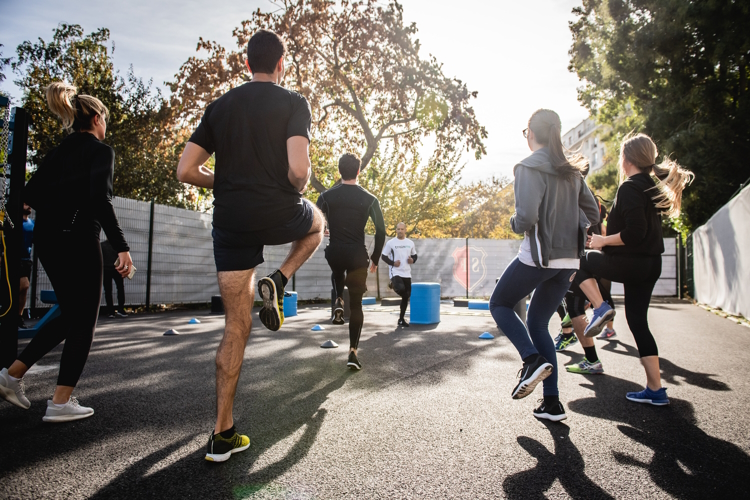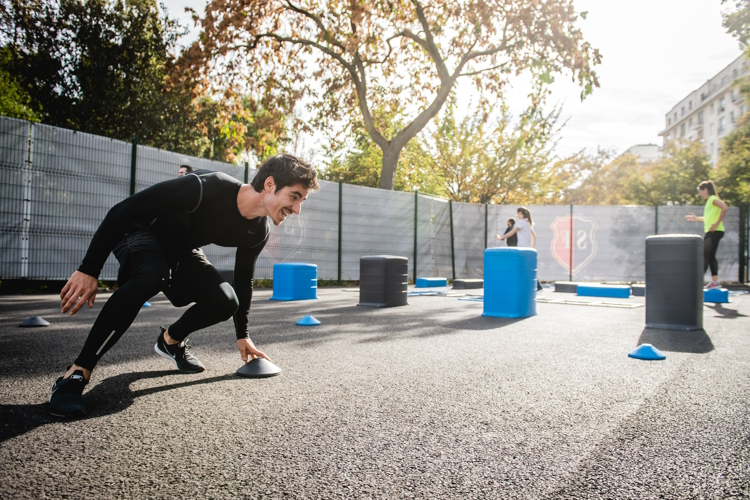Warming up before exercise is an essential part of any workout routine. It helps prepare the body for the physical demands of the workout and reduces the risk of injury. Unfortunately, many people overlook the importance of warming up and jump right into their workout, putting themselves at risk for a variety of injuries. In this blog post, we will discuss the risks of not warming up properly before exercise and why it is so important to take the time to properly prepare your body for physical activity.

The risks
One of the biggest risks of not warming up properly before exercise is an increased risk of injury. When your body is cold and stiff, it is more prone to strains, sprains, and tears. This is because cold muscles are less pliable and more likely to tear when put under stress. Warming up helps to increase blood flow to your muscles, which in turn helps to increase the temperature of your muscles. This increased blood flow and temperature helps to make your muscles more pliable, reducing the risk of injury.
Another risk of not warming up properly before exercise is decreased performance. When your body is cold, it is less efficient at producing energy. This means that you will have less energy available to you during your workout, which can result in decreased performance. Warming up helps to increase blood flow to your muscles, which in turn helps to increase the temperature of your muscles. This increased blood flow and temperature helps to improve the efficiency of your muscles, allowing you to perform at your best.

A third risk of not warming up properly before exercise is an increased risk of muscle soreness. When you exercise without warming up, you are more likely to experience muscle soreness after your workout. This is because your muscles are not prepared for the demands of your workout and are more likely to be damaged. Warming up helps to increase blood flow to your muscles, which in turn helps to increase the temperature of your muscles. This increased blood flow and temperature helps to reduce muscle soreness.
Finally, not warming up properly before exercise can also lead to fatigue. When your body is cold and stiff, it is less efficient at producing energy. This means that you will have less energy available to you during your workout, which can result in fatigue. Warming up helps to increase blood flow to your muscles, which in turn helps to increase the temperature of your muscles. This increased blood flow and temperature helps to improve the efficiency of your muscles, allowing you to perform at your best.
How to warm up
So, how can you properly warm up before exercise? A good warm-up should start with 5-10 minutes of light cardio, such as jogging in place, jumping jacks, or cycling. This will help to get your blood flowing and increase your heart rate. You should then move on to some dynamic stretching, such as leg swings, arm circles, and lunges. Dynamic stretching helps to prepare your muscles for the workout by increasing flexibility and range of motion. Additionally, you can add in some foam rolling or self-myofascial release before stretching to help release muscle tension and increase range of motion.
After that, you should finish your warm-up with some sport-specific exercises that mimic the movements you will be performing during your workout. For example, if you are going to be running, you should include some light jogging or running drills in your warm-up. If you are going to be lifting weights, you should include some light weightlifting or bodyweight exercises in your warm-up. This will help to prepare your muscles and joints for the specific movements you will be performing during your workout.
Cool down
It is also important to remember to cool down properly following your workout. A good cool-down should include light cardio such as a slow jog, walking or cycling and static stretching exercises to help relax your muscles and improve flexibility. This will help to reduce muscle soreness and prevent blood from pooling in your legs. It also helps to decrease the risk of injury and improve recovery.
Conclusion
In conclusion, warming up properly before exercise is essential to reducing the risk of injury, improving performance, reducing muscle soreness, and preventing fatigue. It may take a bit more time to properly warm up, but it is well worth the effort to ensure that you can perform at your best and reduce the risk of injury. Remember, warming up and cooling down is not an optional step, it is an important part of your workout routine. Make sure to take the time to properly prepare your body before and after exercise to ensure that you can get the most out of your workout while also keeping yourself safe.
Active Goals readers get extra discount at MyProtein.com. Use code ‘ACTIVEGOALSFITPT‘ at checkout!
We regularly update our Instagram account with motivational & informative content – come check us out: @activegoalsfitness


